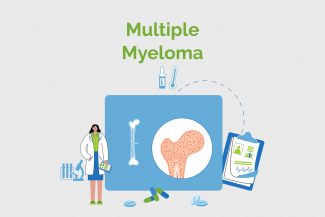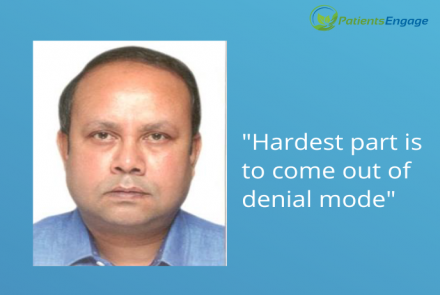Multiple myeloma is a blood cancer that forms in a plasma cell, a type of white blood cell. It is considered a rare cancer. Worldwide, an estimated 176,404 people were diagnosed with multiple myeloma in 2020. There were about 12,000 cases in India in 2020.
Multiple myeloma is treatable and survival rates are better, especially if the disease is diagnosed early and treated.

Management of Multiple Myeloma
Supportive therapy is used for better management of complications, side-effects and other other issues related to cancer. For Multiple Myeloma, this can include:
- Controlling nausea and vomiting with medications.
- Bisphosphonates or bone-strengthening drugs to slow down bone damage.
- Medications like monoclonal antibodies (denosumab) to prevent osteoporosis, and risk of fractures.
- Hematopoietic growth factors or colony-stimulating factors to increase production of red and white blood cells.
- Antibiotics to prevent and fight infections due to poor immunity. Strict hygiene protocols to prevent risk of any infections even simple cold and flu. Pneumoccocol, flu and covid vaccination should be taken as prescribed by your doctor.
- Plasma exchange to reduce the hyperviscosity of the plasma with new plasma from a healthy donor. This is called termed Plasmapheresis.
- Physical activity to counter bone loss but make sure you avoid injury.
- For best kidney health, drink plenty of fluids especially if you have “bence-jones myeloma”. Avoid use of NSAIDS that can further damage your kidney.
- Get a dental check-up to see if jaw and teeth have not been affected. Check for infection and side-effect of bisphosphonate use. If you need any dental procedures, make sure you consult your Oncologist on when you should get it done.
For lived experiences of people with multiple myeloma, click here
Changed
17/Apr/2025
Community
Condition

















